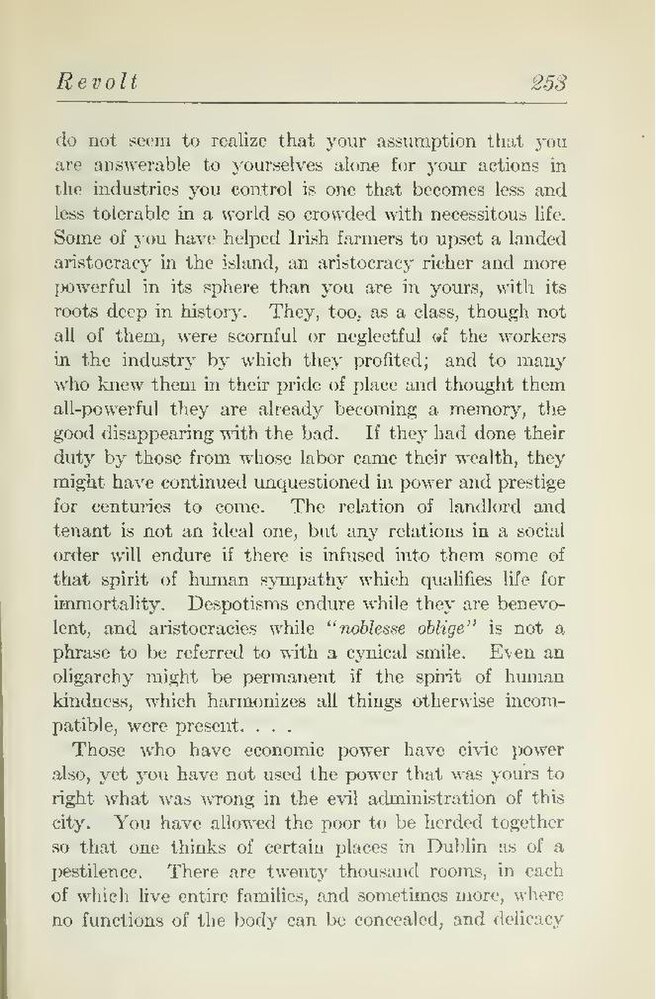do not seem to realize that your assumption that you are answerable to yourselves alone for your actions in the industries you control is one that becomes less and less tolerable in a world so crowded with necessitous life. Some of you have helped Irish farmers to upset a landed aristocracy in the island, an aristocracy richer and more powerful in its sphere than you are in yours, with its roots deep in history. They, too, as a class, though not all of them, were scornful or neglectful of the workers in the industry by which they profited; and to many who knew them in their pride of place and thought them all-powerful they are already becoming a memory, the good disappearing with the bad. If they had done their duty by those from whose labor came their wealth, they might have continued unquestioned in power and prestige for centuries to come. The relation of landlord and tenant is not an ideal one, but any relations in a social order will endure if there is infused into them some of that spirit of human sympathy which qualifies life for immortality. Despotisms endure while they are benevolent, and aristocracies while "noblesse oblige" is not a phrase to be referred to with a cynical smile. Even an oligarchy might be permanent if the spirit of human kindness, which harmonizes all things otherwise incompatible, were present. . . .
Those who have economic power have civic power also, yet you have not used the power that was yours to right what was wrong in the evil administration of this city. You have allowed the poor to be herded together so that one thinks of certain places in Dublin as of a pestilence. There are twenty thousand rooms, in each of which live entire families, and sometimes more, where no functions of the body can be concealed, and delicacy
